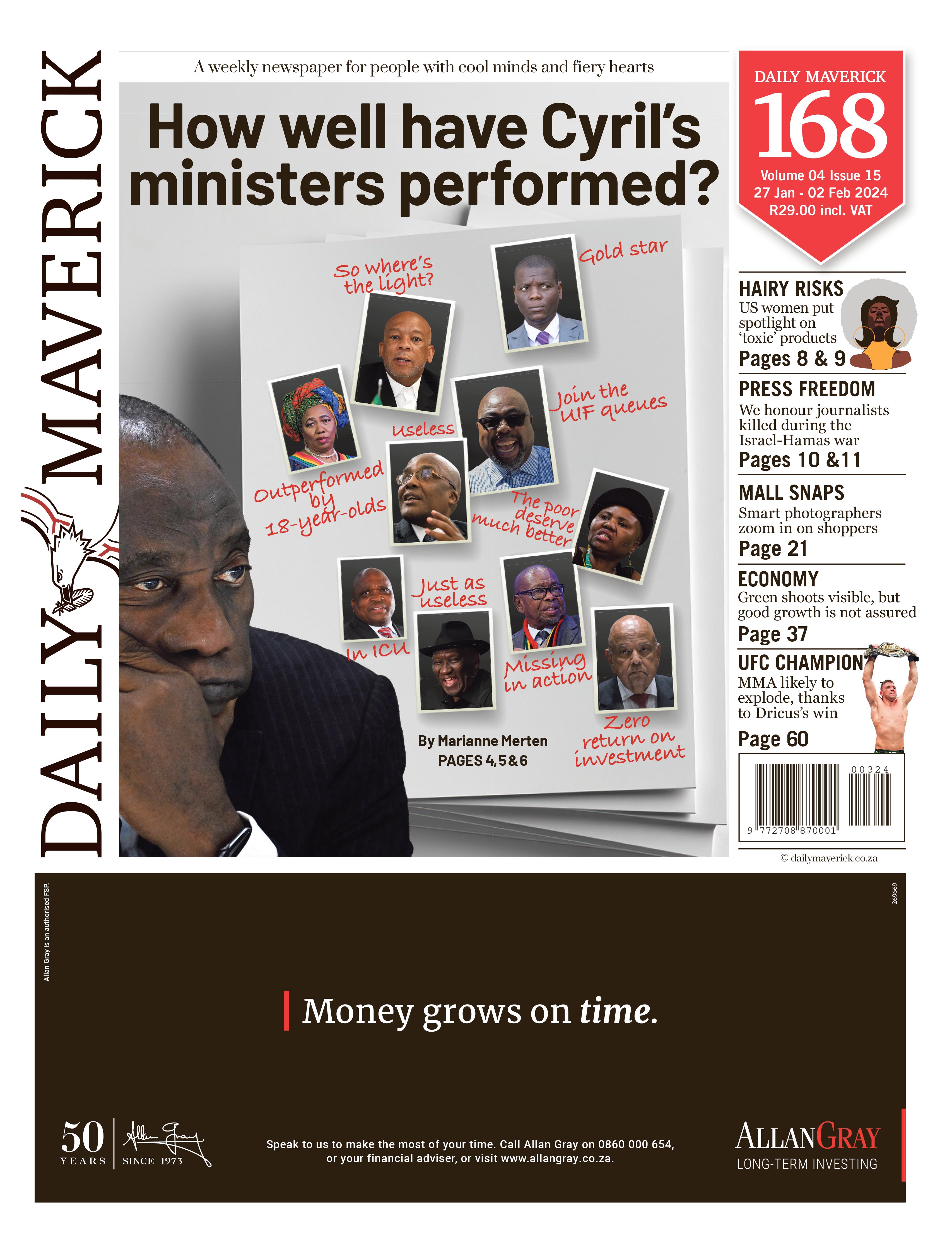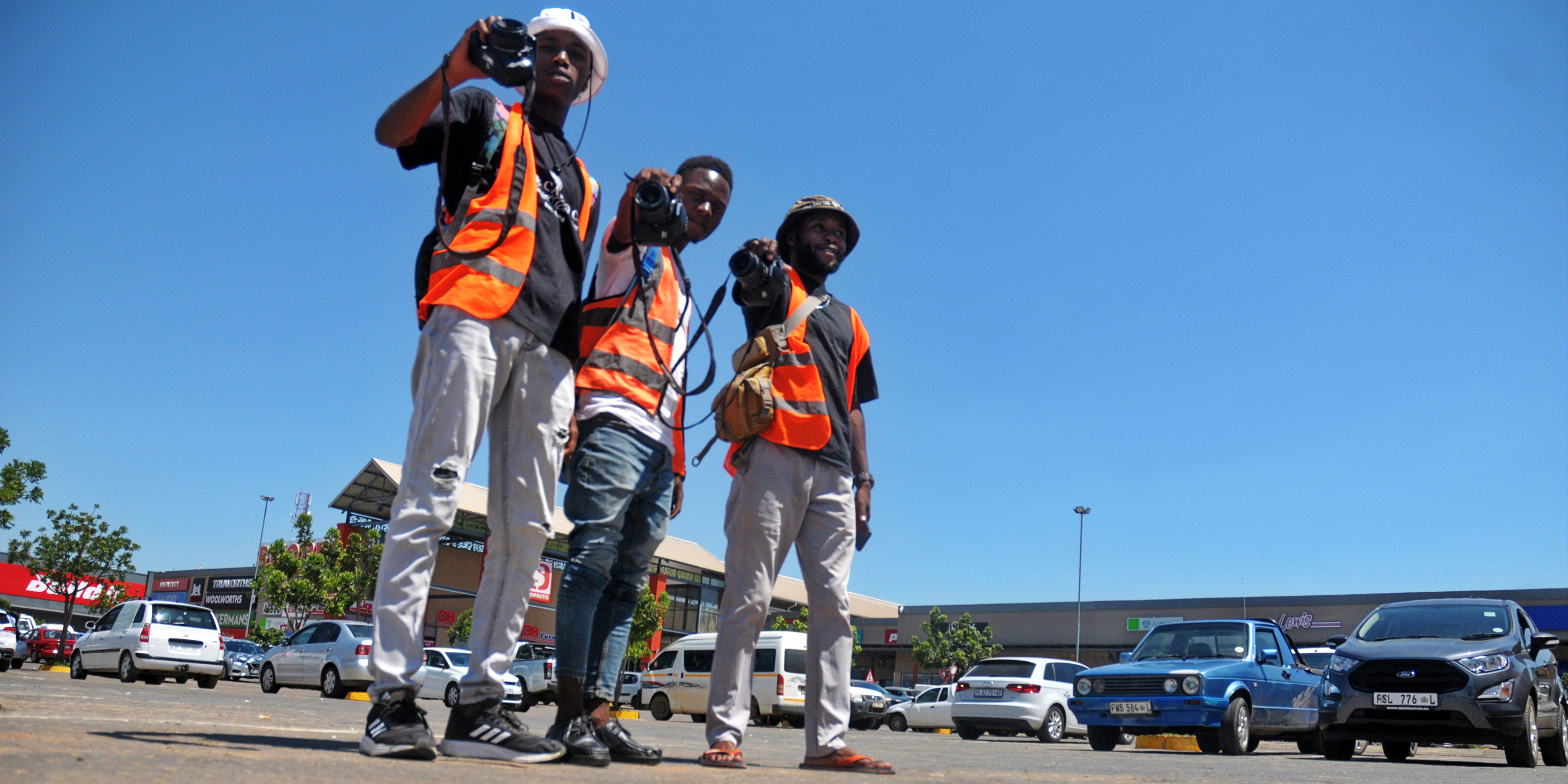A young man with a camera spots a woman walking casually with a little girl among scores of other shoppers in the parking lot of the Paledi Mall in Limpopo. He quickly takes up position and begins clicking away at the unsuspecting shopper.
After taking a couple of shots, he looks at his camera screen to check if he got the right images. Satisfied with the result, he walks up to her and shows her the screen.
Surprised and elated at the same time, she smiles in appreciation. She asks for a more formal shoot in a trendy area designed for weary shoppers to rest and for children to play and enjoy snacks or a meal after shopping.
This is photographer Archibald Moyo’s daily hustle at this mall, located on the boundary of the bustling university township of Mankweng and the cluster of tribal trust settlements, Ga-Mothiba and Ga-Mothapo, about 25km east of Polokwane.
The development of malls like Paledi in rural areas which, until a few years ago, did not enjoy such amenities, has allowed youngsters like Moyo to earn a living through the lens.
 Young Kwetsimo Chabalala poses after a shopping outing with her mom. Shoppers take advantage of the presence of social photographers working at the mall to capture memories. (Photo: Lucas Ledwaba / Mukurukuru Media)
Young Kwetsimo Chabalala poses after a shopping outing with her mom. Shoppers take advantage of the presence of social photographers working at the mall to capture memories. (Photo: Lucas Ledwaba / Mukurukuru Media)
Until the early 2000s, many photographers captured memories on film. Street photography was a lucrative occupation in urban centres and city parks, with men and women wielding good photographic equipment, making a living capturing memories for lovers and families – or just people wanting to send images to loved ones in far-off rural areas.
In townships and villages, photographers walked the streets on weekends to capture children and their parents in their Sunday best, footballers in colourful club regalia, or couples hoping to memorialise their moments of pleasure.
But the introduction of digital and cellphone photography shook this thriving business to its core, all but forcing photographers off the streets and out of parks. Multinationals like Kodak, which had made a fortune producing film and photo paper, also found themselves at the crossroads of the digital revolution.
Moyo picked up a camera early this year after his work contract ended. For two months, the young man from the Toronto section in Makweng worried about how he was going to support his unemployed mother and three younger brothers.
He took the advice of a friend and bought a digital camera with the last of his savings.
“No, I wasn’t interested in photography before that,” he says.
With his new camera, he set off for Paledi Mall where he introduced himself to other young people also engaged in the business.
 Hlayisani Chabalala likes what she sees on photographer Archibald Moyo's phone after a quick photo shoot with her little girl. (Photo: Lucas Ledwaba / Mukurukuru Media)
Hlayisani Chabalala likes what she sees on photographer Archibald Moyo's phone after a quick photo shoot with her little girl. (Photo: Lucas Ledwaba / Mukurukuru Media)
“On the first day, I interacted with my fellow brothers who taught me how to set up the camera, teaching me about things they do and how they approach clients. I was a bit nervous and shy to interact with people. But I had to learn,” recalls Moyo.
The photographers position themselves at the different entrances of the mall and solicit business by either taking random shots of people or stopping to ask for permission to take pictures. After clicking away, they show the results to their subjects. If everyone is happy with the quality of the pictures, they are downloaded onto phones via Wi-Fi and transferred to the client, who pays R30 for three images.
If the client prefers to have a print, a studio inside the mall offers a quick and convenient printing service.
Read more in Daily Maverick: Untamed talent — take your pic(k) in the Wildlife Photographer of the Year awards
The dozen or more photographers are kitted out in orange bibs issued by mall management to make them easily identifiable to security and shoppers. Some roam between different malls.
“Unemployment is too high. Photography keeps us away from so many things: crime, the influence of drugs, and teaches us to manage our finances in our hustle,” Moyo says.
Statistics South Africa’s Quarterly Labour Force Survey for the second quarter of 2023 revealed: “There were about 10.2 million young people aged 15 to 24 years in Q2: 2023, of which 34.2% were not in employment, education or training.”
Young people like Makgoba Gift Letsoalo, who previously had very little hope of earning a living, have found salvation in street photography.
He once captured images of a woman at the mall and she was so happy that, instead of paying him R15, she decided to shower him with R300.
Letsoalo, of Ga-Rampheri in the Molepo traditional authority, used to hang out with a photographer friend at the mall while undergoing driver’s licence training in the hope of securing a job in the transport sector.
One day his friend lent him a camera and showed him the basics of taking pictures. He was hooked.
“I started taking an interest and realised I could put bread on the table. I later bought my own camera using some of the money I made from my friend’s camera,” says Letsoalo.
Read more in Daily Maverick: COP28’s ‘fired-up’ photographer changes the focus to highlight the ‘beauty’ of negotiations
“I learnt photography right here at the mall. I spent hours learning about the settings and taking pictures to check things like exposure. I want to go far in this thing. I want to grow and own my own studio,” he says.
His business has already grown beyond the mall.
“I also get people calling me to come shoot their events, birthday parties and weddings,” Letsoalo says.
 After taking pictures with their cameras they are transferred to a cellphone where they are transmitted via WhatsApp to clients or sent for printing at a studio in the mall. (Photo: Lucas Ledwaba / Mukurukuru Media)
After taking pictures with their cameras they are transferred to a cellphone where they are transmitted via WhatsApp to clients or sent for printing at a studio in the mall. (Photo: Lucas Ledwaba / Mukurukuru Media)
He once captured images of a woman at the mall and she was so happy that, instead of paying him R15, she decided to shower him with R300.
Ntshepeng Motshana from Mamadimo Park got into the business while trying to decide on the next course of his life’s journey during a gap year.
He started out working for other photographers who hired out their cameras to him at rates ranging from R40 a day.
Read more in Daily Maverick: A-Z career guide
“That’s when I began to value the importance of photography,” he says.
Realising that business was not bad, he invested in his own equipment.
Moyo says the response from clients, especially young people, is generally good and they appreciate the preservation of memories.
“When I take a picture, that moment is something that will never be repeated. It’s memorable. You can’t erase those memories unless someone destroys them.
“We encourage our customers to save their photos on Google accounts in case they lose their phones,” he says. DM/Mukurukuru Media
Lucas Ledwaba is a photojournalist, author, filmmaker, editor and founder of Mukurukuru Media.
This story first appeared in our weekly Daily Maverick 168 newspaper, which is available countrywide for R29.





 After taking pictures with their cameras they are transferred to a cellphone where they are transmitted via WhatssApp to clients or sent for printing at a studio in the mall. Photo: Lucas Ledwaba/Mukurukuru Media
After taking pictures with their cameras they are transferred to a cellphone where they are transmitted via WhatssApp to clients or sent for printing at a studio in the mall. Photo: Lucas Ledwaba/Mukurukuru Media